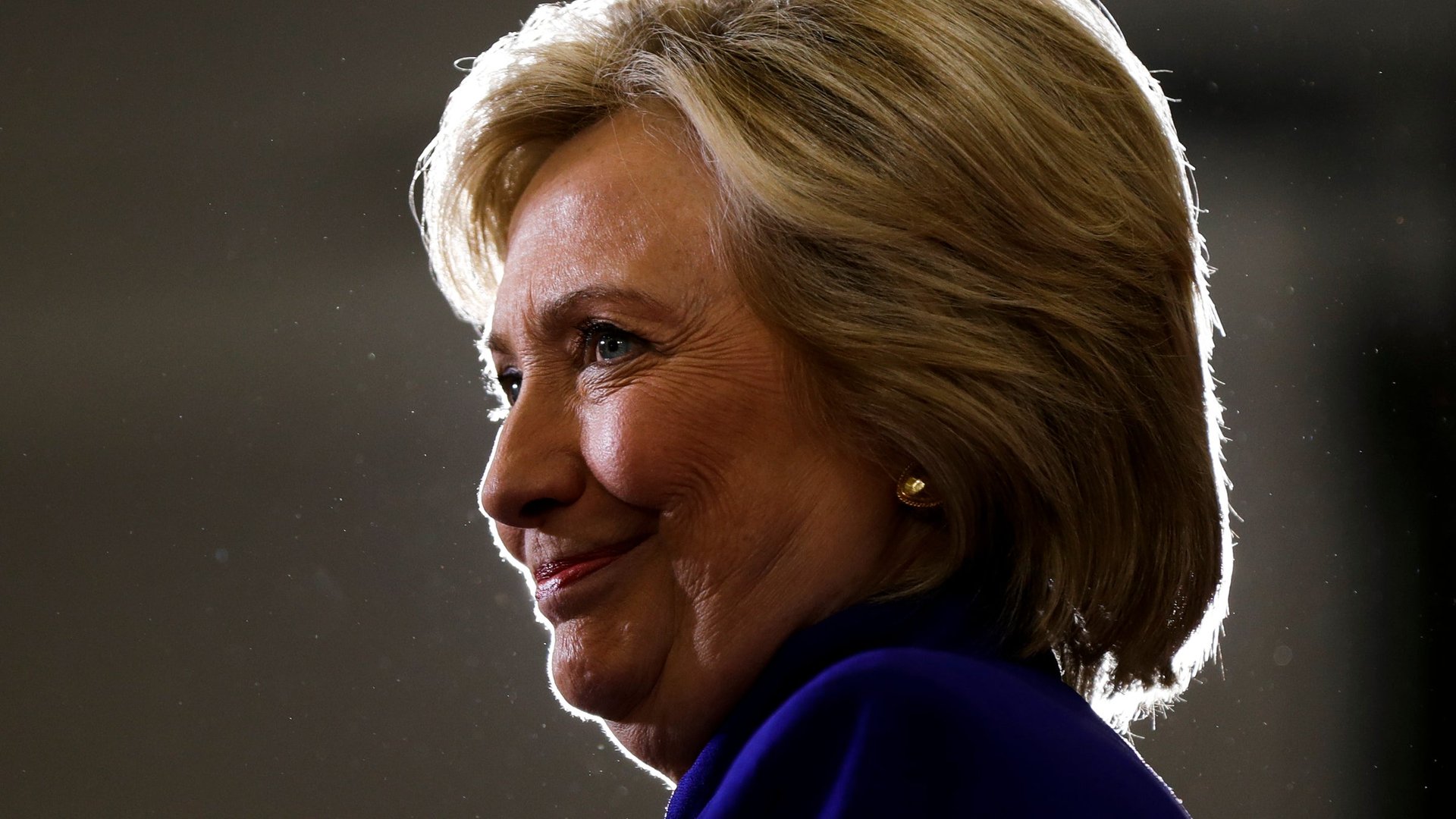The challenge for Hillary Clinton is simply to be herself on the debate stage
Hillary Clinton is often portrayed in the media as isolated in a cocoon of staff and some kind of incomprehensible villain. Perhaps that’s why she often surprises the public with her humanity once it’s presented unfettered by those other narratives.


Hillary Clinton is often portrayed in the media as isolated in a cocoon of staff and some kind of incomprehensible villain. Perhaps that’s why she often surprises the public with her humanity once it’s presented unfettered by those other narratives.
Her debate against Donald Trump tonight—one that may attract 100 million viewers—offers her a critical opportunity to surprise us once again. To present the best side of herself to the viewing audience, she’ll need to shed her distressing habit of being her own worst enemy.
To be clear: Trump has yet to land a real punch on Clinton during this campaign. The term ‘unforced error’ comes to mind when looking at Clinton’s last year of dogged campaigning for the office she has sought for at least the last decade.
From July to September, a Gallup survey reveals, Americans have mainly heard about Clinton’s e-mail server—a “scandal” with no apparent wrong-doing, but all the hallmarks of Clintonian paranoia. Similarly, her and her husband’s heady mixture of service and self-promotion at the Clinton Foundation display a level of rashness one wouldn’t expect from life-long politicians careful to avoid the appearance of conflicts of interest.
These twin preoccupations set up the damaging narrative that the Clintons play by their own rules, which is true in the sense that they receive far more scrutiny than other politicians and business leaders.
How can Clinton shed this? Besides her most vital debate ally—an innate ability to activate male candidates latent sexism—she needs to lean into the lessons learned at her most successful media appearance to date, the absurdist talk show parody “Between Two Ferns.” Her demeanor in the face of host Zach Galifianakis’ satirical interrogation—frosty but game—offered the image of Clinton as “the boss who’s boss,” a difficult role to fill without being tagged as arrogant or out-of-touch or, for a woman, bitchy.
It was good prep for facing Donald Trump, whose own rhetoric leans into the comic more often than is perhaps presidential. The key for Clinton will be to worry less about Trump and his provocations, and more about demonstrating her primary political virtue, the dogged willingness to do the work that endeared her to senate constituents and colleagues alike, and her no-foolishness pragmatism.
Though fewer than 10% of voters today say they are undecided, exit polls from the 2012 elections found that 20% of voters made up their mind in the last month of the campaign. Voters tuning into the debate expecting to see Clinton as Lady MacBeth or weakened with a fantasy illness may be surprised, even pleased, with the rather ordinary center-left politician they encounter. Trump’s team will be pleased if the night is a slugfest, and disappointed if Clinton declines to join Trump in his tar pit.
The audience won’t need to be told Trump’s stupid, but they’ll want to know if Clinton feels like someone they trust. It will be critical that she isn’t defensive when pushed on her integrity and not irritated by the moderator’s questions.
When it comes to Trump, Clinton’s team has made much of their plans to go on offense, but it may be more important for her to focus on explaining her own campaign, whose themes of national unity and a more egalitarian economy have often been obscured by attacks on Trump’s offensive behavior and wild ideas.
Indeed, while Trump is being asked by his advisors be something he isn’t at the debates—calm and prepared—Clinton must simply be the best version of herself.